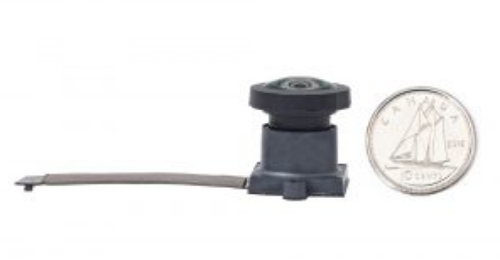, a global developer of advanced vision systems combining optics, image processing, and sensor fusion technology, has announced the availability of its UAV (Unmanned Aerial Vehicle) Low-Light Navigation Camera Module designed for autonomous and semi-autonomous navigation in all environments, with high performance in low-light conditions.
Designed to satisfy the demanding requirements of total situational awareness (or 360° surround machine perception) operating in low-light conditions, this plug and play solution gives access to Immervision’s advanced wide-angle camera module and image processing software. Its compact design fits easily in different types of UAV/UAS/drones while its light weight has a small impact on power consumption. The rugged design is well suited for a wide range of applications, including robots, land vehicles, and water vessels.
“UAVs are becoming increasingly used in industrial inspection, remote sensing for mapping and surveying, rescuing and more,” explains Patrice Roulet, Vice President, Technology and Co-Founder at Immervision. “To conduct these operations properly, autonomous navigation capability is essential, especially in complex environments where other sensors are inefficient or battery hungry. Our camera module provides fast high precision input for navigation systems in various challenging outdoor and indoor environment.”
The camera module includes the lens assembly, a 5MP sensor, and a MIPI interface, weighing only 4.7 grams. Unlike a typical fisheye lens this camera module uses a panomorph lens combining an ultra wide-angle Field of View (190° FoV) with a unique distortion profile and a large aperture (F#1.8). It is crafted to maximize the light sensitivity of pixels and optimize the image quality from edge to edge, for use by human operators and/or artificial intelligence (AI) and machine learning (ML) systems.
Key Features:
- Wide-angle panomorph lens with smart pixel management provides enhanced image quality.
- The lens small F# and high relative illumination, combined with the high sensitivity of the Sony sensor, ensures exceptional performances in a variety of low light conditions.
- IP67 rating and front lens element in glass for usage in various environments, outdoors and indoors.
- Small footprint and light weight.
- Off-the-shelf solution, available and ready for implementation.
- Easily customizable to various platforms and flight controllers.
Source: Press Release


